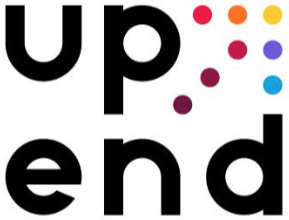1) Reduce the conflict in our own lives, communities and nation--on the highways, at school board meetings, and even in our places of worship. Caught up in debates about democracy, race, voting rights, COVID, masking, and vaccinations, any subject can become a political litmus test if we allow it. Rather than feeding into division, meet conflict with an eye toward understanding, connection and growth. Prioritize creating peace and connectedness at a time our nation and world needs it.
2) Practice self-care. If you’re running around catastrophizing about the state of the world, you risk burning out, becoming radicalized or paralyzed by fear. Use your voice and resources in productive ways, contribute to solutions, do your best to take stress breaks from the news, go for walks in nature and cultivate a center of calm commitment.
3) Learn Skills to Have Courageous Conversations. Turning conflict for growth and cooperation requires engaging with people who hold a different world view. This can be uncomfortable. Each summer we bring 40 San Diegan, Israeli, and Palestinian youth to learn skills to help them navigate uncomfortable encounters with “the other.” For three hours a day over the course of three weeks they learn how to listen, ask curious questions, and practice nonviolent communication. Learning how to listen to understand and how to speak to be understood changes their lives - and can change yours.
4) Stand in Service. Get involved with organizations and causes that counter violence like Hands of Peace or the San Diego Diplomacy Council. These organizations, and others, promote dialogue, people-to-people interaction, and building bridges. By supporting President Biden, Prime Minister Macron, NATO, President Zelenskyy and the United Nations’ peace initiatives, and reaching out to your representatives, you can also advocate for justice in nonviolent ways.
5) Be Informed. Misinformation is a tool of war being used now more than ever. This war creates an opportunity to see in real time the cost of such aggression to both Ukraine and Russia, and to learn about the tools of diplomacy that are available to counter the invasion of one country by another. There are peaceful methods of conflict resolution promoted by organizations such as The United States Institute for Peace.
2) Practice self-care. If you’re running around catastrophizing about the state of the world, you risk burning out, becoming radicalized or paralyzed by fear. Use your voice and resources in productive ways, contribute to solutions, do your best to take stress breaks from the news, go for walks in nature and cultivate a center of calm commitment.
3) Learn Skills to Have Courageous Conversations. Turning conflict for growth and cooperation requires engaging with people who hold a different world view. This can be uncomfortable. Each summer we bring 40 San Diegan, Israeli, and Palestinian youth to learn skills to help them navigate uncomfortable encounters with “the other.” For three hours a day over the course of three weeks they learn how to listen, ask curious questions, and practice nonviolent communication. Learning how to listen to understand and how to speak to be understood changes their lives - and can change yours.
4) Stand in Service. Get involved with organizations and causes that counter violence like Hands of Peace or the San Diego Diplomacy Council. These organizations, and others, promote dialogue, people-to-people interaction, and building bridges. By supporting President Biden, Prime Minister Macron, NATO, President Zelenskyy and the United Nations’ peace initiatives, and reaching out to your representatives, you can also advocate for justice in nonviolent ways.
5) Be Informed. Misinformation is a tool of war being used now more than ever. This war creates an opportunity to see in real time the cost of such aggression to both Ukraine and Russia, and to learn about the tools of diplomacy that are available to counter the invasion of one country by another. There are peaceful methods of conflict resolution promoted by organizations such as The United States Institute for Peace.


